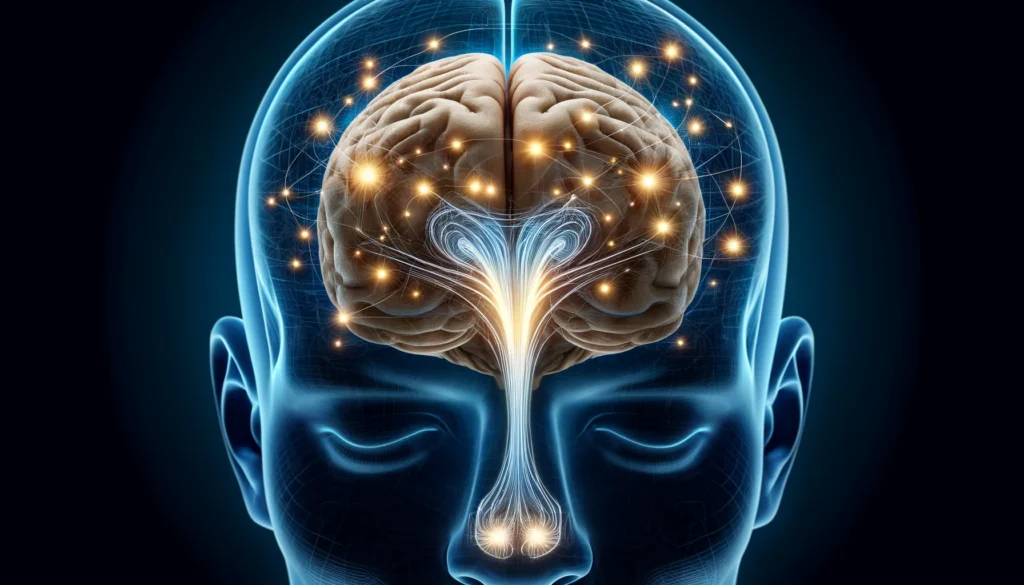Have you ever wondered why the smell of freshly baked cookies or a whiff of a perfume can transport you back in time? Certain smells have the power to evoke vivid memories, almost as if you are reliving a moment from your past. This intriguing connection between scents and recollection plays a significant role not just in our personal memories but also offers potential therapeutic benefits. In this blog, we delve into how scents impact our memories and their applications in daily life and therapy.
The Science Behind Scent and Memory
Understanding the Olfactory System
The journey of scent begins in the olfactory system, the sensory system responsible for our sense of smell. When you inhale an aroma, molecules bind to receptors in the olfactory bulb, located at the base of the brain. This is the primary interface between the smell and the brain’s processing centers.
Brain Connections: The Limbic System
The olfactory bulb has direct connections to the brain’s limbic system, involving areas crucial for emotion and memory—the hippocampus and the amygdala. This proximity explains why a scent can trigger emotional memories so quickly and vividly, often bypassing conscious thought. As one experiences various scents, the brain links these smells to memories, storing them as nostalgic reminders of past experiences.

Studies and Evidence
Research has continually supported the potent link between scents and memory recall. Major studies reveal that after a year, people recall scents with 65% accuracy, whereas visual memory drops to 50% within months. This indicates the profound impact that olfactory impressions have over other senses when it comes to memories.
Highlighting Significant Findings
Further evidence suggests that environmental congruence plays a role in memory recall. For instance, individuals can recall certain memories better when the scent in their environment matches the one present at the time the memory was formed. This phenomenon underlines the depth of integration between our olfactory perceptions and our memories.
Applications in Real Life
Therapeutic Uses
In therapeutic settings, understanding the science of scent can be revolutionary, particularly in treating conditions like PTSD, where specific smells can help access and process traumatic memories in a controlled manner, potentially alleviating distress.
Commercial Applications
Commercially, businesses use scents strategically to enhance customer experiences. From the comforting smell of a hotel lobby to the distinctive aroma in a luxury vehicle, companies design scent-related experiences that ensure their brand remains memorable.

Conclusion
The relationship between scent and memory is not only fascinating but also incredibly significant in both personal and professional contexts. As we understand more about how scents affect our memories and emotions, we can harness this knowledge to enrich our daily lives and therapeutic practices. Whether it’s by paying more attention to the smells around us or using specific scents to boost memory recall, the potential applications are as limitless as they are promising. Future research may continue to uncover even more about this remarkable sensory phenomenon.
Author’s Note
I hope this exploration into the science of scent and memory enriches your understanding of how deeply intertwined our sense of smell is with our past experiences. I encourage readers to think of scents not just as mere background elements of our daily lives but as powerful tools that can evoke, enhance, and enrich our memories.
G.C., Ecosociosphere contributor.
References and Further Reading
- “What the Nose Knows: The Science of Scent in Everyday Life” by Avery Gilbert – A comprehensive look into how scents influence our daily lives and emotions.
- “The Scent of Desire: Discovering Our Enigmatic Sense of Smell” by Rachel Herz – This book explores why scent is such a powerful trigger of memories.
- “Essence and Alchemy: A Book of Perfume” by Mandy Aftel – Offers insight into the history, mystery, and science of perfume and how it relates to memory.





Comments
I always look forward to reading your posts, they never fail to brighten my day and educate me in some way Thank you!
This blog is like a breath of fresh air in the midst of all the negativity on the internet I’m grateful to have stumbled upon it
Your writing is so eloquent and persuasive You have a talent for getting your message across and inspiring meaningful change
This blog post hit all the right notes!
I love how this blog promotes self-love and confidence It’s important to appreciate ourselves and your blog reminds me of that
Love this appreciation for great content